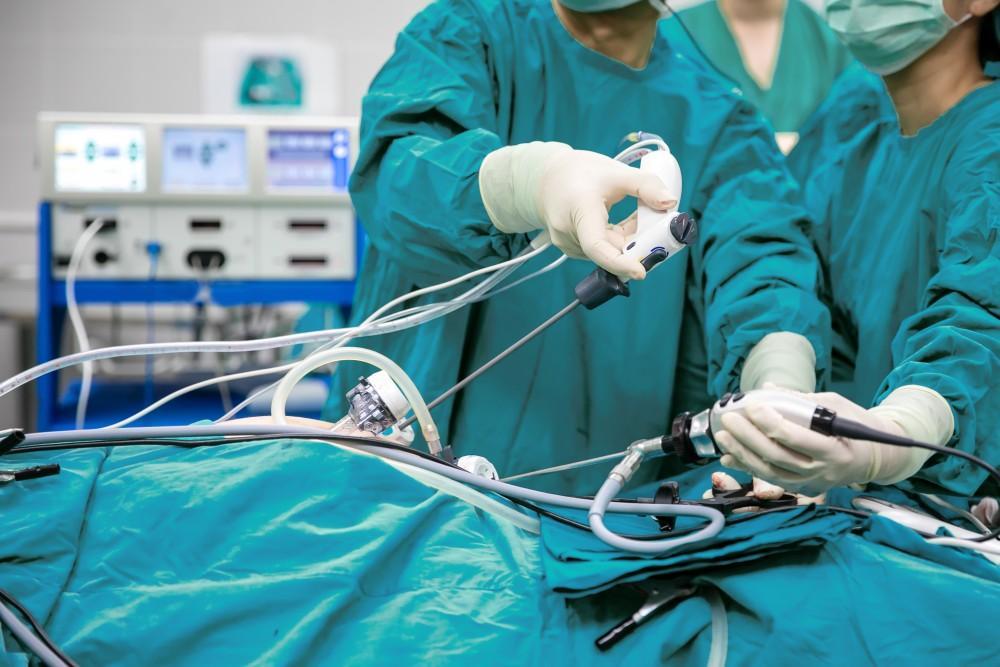
Symptoms You May Not Realize Are Being Caused by Gallbladder Disease

If you’re like most people, your gallbladder is unlikely to cross your mind until it begins causing problems. Gallbladder issues can cause pain and other prominent symptoms as well as vague symptoms that you’re less likely to realize are caused by gallbladder disease. Learn how gallbladder issues affect your body, when to seek professional help, and how treatment can provide relief.
What is the gallbladder?
The gallbladder is a small, pear-shaped organ about 3-4 inches in length. Its job is to store bile, a digestive fluid that aids your body in absorbing fat and the fat-soluble vitamins A, D, E, and K.
When you eat fat-containing foods, your gallbladder contracts and releases bile into the small intestine, where it breaks the fat down. A healthy gallbladder does this without pain or problems. People with gallbladder problems tend to experience pain and discomfort after eating fatty meals because their gallbladder is either blocked or has stopped functioning properly.
Common gallbladder disease symptoms
In many cases, gallbladder disease can cause significant pain, typically following meals that contain fat. Sticking to a low-fat diet is one approach to easing gallbladder pain. However, doing so doesn’t address the root of the problem; you may need to have your gallbladder removed. Some of the most prominent symptoms of gallbladder disease include:
- Nausea
- Vomiting
- Acid reflux
- Abdominal pain
Gallbladder pain usually occurs in the middle to upper-right part of your abdomen. In some people, the pain is severe and frequent, while others may experience mild pain that comes and goes.
Complications of gallbladder disease
Without treatment, gallbladder problems can become life-threatening. Gallbladder disease can cause infection that may spread to other parts of the body. It’s important to seek immediate medical attention if you experience an unexplained fever. This may be a sign of infection.
A bile duct blockage can cause jaundice. Yellow-tinted skin is a warning sign that you may have a blockage in your bile duct. Chronic diarrhea is also a complication of gallbladder disease.
Lesser-known gallbladder disease symptoms
While pain is certainly one of the most common symptoms of gallbladder disease, you may have other symptoms that you might not realize are related to a gallbladder problem. Some examples:
Lack of appetite
People with gallbladder disease may experience a lack of appetite without recognizing the true cause. If you have other symptoms of gallbladder problems and notice that your appetite isn’t as robust as you’re used to, it may be a signal of gallbladder disease.
Fat-soluble vitamin deficiency
Because bile is needed to absorb fat-soluble vitamins, you may experience a deficiency in crucial nutrients like vitamin D. Indications that you have low levels of fat-soluble vitamins — such as experiencing fatigue (low vitamin D) or bruising easily (low vitamin K) — serve as a warning sign that something may be amiss with your gallbladder.
Dark urine
If you suspect that you have gallbladder problems, your urine may provide a clue. A blockage of the bile duct can cause urine to appear darker than normal. Report any changes in your urine color to your doctor, along with any other symptoms you may be experiencing.
Change in bowel habits
If you find yourself making more trips to the bathroom or if the consistency of your stool has changed, this may be a signal that your gallbladder isn’t working properly. A change in bowel habits is a commonly overlooked symptom of gallbladder disease.
When you need your gallbladder removed, the team at Rockwall Surgical Specialists offers the latest advancements in gallbladder surgery, including laparoscopic and robotic surgery. To learn more, call one of our convenient locations to schedule an appointment or request a booking online.
You Might Also Enjoy...


Is It Time for Your Colonoscopy?

Why Your Weight and BMI Are Important Barometers of Your Overall Health

When Does a Hiatal Hernia Require Surgery?

5 Compelling Benefits of Laparoscopic Surgery

